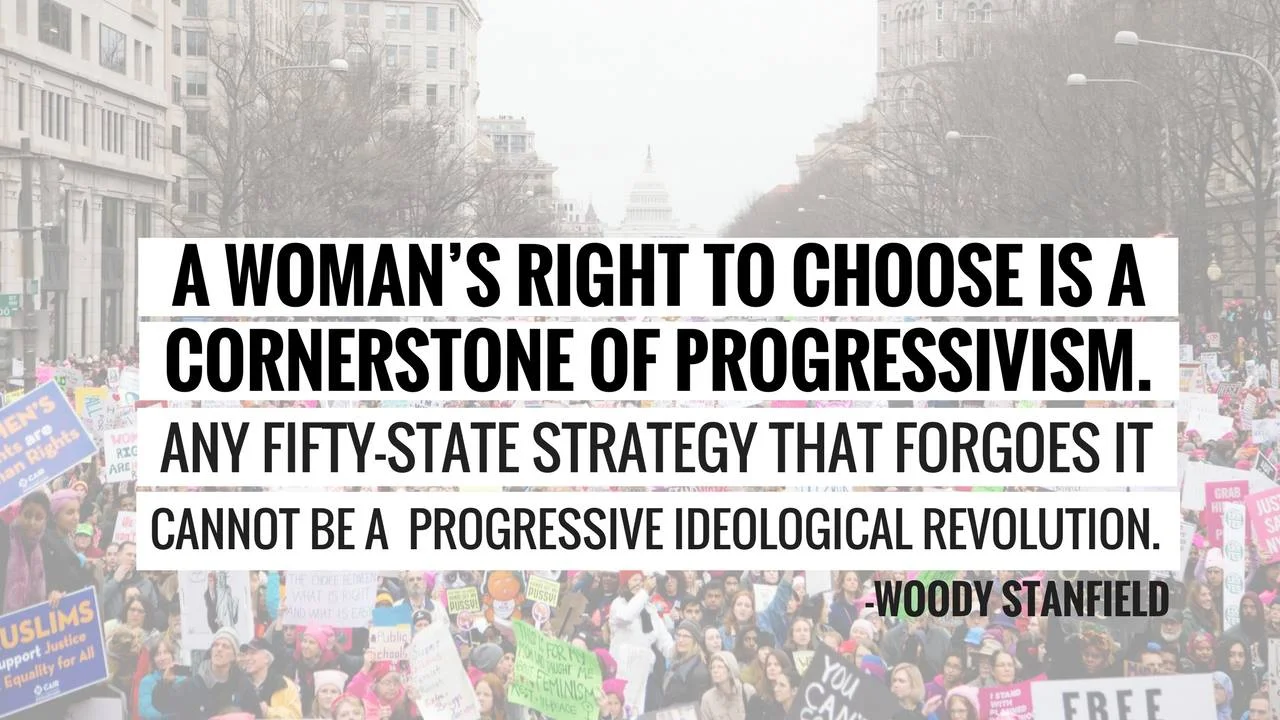By Woody Stanfield
I was eating dinner after work when I saw Tom Perez had announced Bernie Sanders would join him on a unity tour around the county. I was thrilled. This, right after Perez named Keith Ellison vice-chair, signaled to me that under Perez the Democratic Party is taking Progressive voices seriously. I read the statements from both Perez and Sanders and I was particularly excited about Sanders’ call for fifty-state strategy.
With the shakeups in the electoral map over the past few cycles, reevaluating what states Democrats can win makes sense. I currently live in Georgia where the Democrats are gaining a stronger foothold every year. I would love to see more of that happen around the country.
However, in the past week, Bernie Sanders and Tom Perez have garnered some intense negative attention after a campaign rally for Heath Mello for Mayor of Omaha, Nebraska.
This story broke after the President of NARAL Pro-Choice America, Ilyse Hogue, released a statement attacking Mello for being pro-life and denouncing both Sanders and Perez, as well as the DNC at large for supporting him. The statement deserves to be read in full and I have linked it here.
When I first saw these stories, I was taken aback. While doing some brief internet research, I learned Mello made it on the list at Sanders’ behest. I read Mello’s own comments promising he would not restrict access to women’s health. But after looking deeper, Mello’s political track record on abortion services indicates he has committed to an anti-choice platform in the past. Even taking Mello at his word, a promise of not restricting access is a far cry from the ardent support for abortion that the DNC espouses, and that Sanders’ progressive revolution should call for.
On Face the Nation, when asked about his endorsement of Mello and the fallout, Sanders said:
I think what is clear… is that the model of the Democratic Party is failing. Republicans control the House and the Senate, two thirds of the Governor's’ chairs, and in the past eight years, they have picked up 900 legislative seats. Clearly, the Democratic Party has to change and in my view what it has to become is a grassroots party, a party that makes decisions from the bottom on up, a party that speaks to the pain of the working class in this country….
If we are going to become a fifty-state party, if you’re going to go to Omaha, Nebraska which has a Republican governor, two Republican senators, all Republican congresspeople…. If you have a rally in which you have the labor movement and the environmentalists and Native-Americans and the African-American community and the Latino community coming together saying, ‘We want this guy to become our next mayor.’
But in response to the next question about whether or not he would hand his email list over to the DNC, he said, “Well right now our focus is building up a strong, progressive movement in this country and I think the people who donated want us to focus on electing the most Progressive people we can.”
Sanders is simultaneously pushing for two things that are mutually exclusive. When Sanders ran in the primary, he called for an ideological revolution that seeks to make the Democratic Party more progressive and less beholden to monied interest. Now, post-election Sanders is calling for a populist, 50-state initiative to revitalize the Democratic Party with fresh, new voters, to increase voter participation, and to defeat Trump’s Republicans.
Now, the fifty-state strategy is not Sanders’ creation. The phrase is embedded into America’s political dictionary. The fifty-state strategy always comes with an exchange on many of our principles. For example, Democrats have been winning for decades with pro-coal candidates in Kentucky. But it is unique for it to be coupled with an ideological revolution, let alone a progressive one. And it really does not make sense.
A woman’s right to choose is a cornerstone of Progressivism. Any fifty-state strategy that forgoes it cannot be a Progressive ideological revolution. Sanders is more concerned about a populist revolution than a Progressive one. He wants to see the Democratic Party grow its member base in order to defeat Trump’s Republicans. However, those members are being drawn from more conservative regions of this country. The ideals they hold and the candidates they will elect, will not be progressives. I see Sanders’ point, Mello will be better than his opponent who is ardently pro-life and brings supporters like Scott Walker into the fold. But, that sounds like a pragmatist trying to achieve marginal change, not the champion of an ideological revolution.
More importantly, even in a fifty-state strategy, there are some principles we must never give up. Abortion rights are among them. Mello’s track record with abortion may not disqualify him from being a Democrat or receiving endorsements from the major players in the Party, but it should disqualify him from receiving major DNC rallies and significant financial support.
The revitalization of the Democratic Party cannot abandon progressive values in order to win in more conservative areas. Instead, it should leverage national support in those regions for harder stances on key progressive issues. Sanders, Perez, and the DNC should use their influence to push Mello to take a stronger pro-choice stance, not look the other way.

